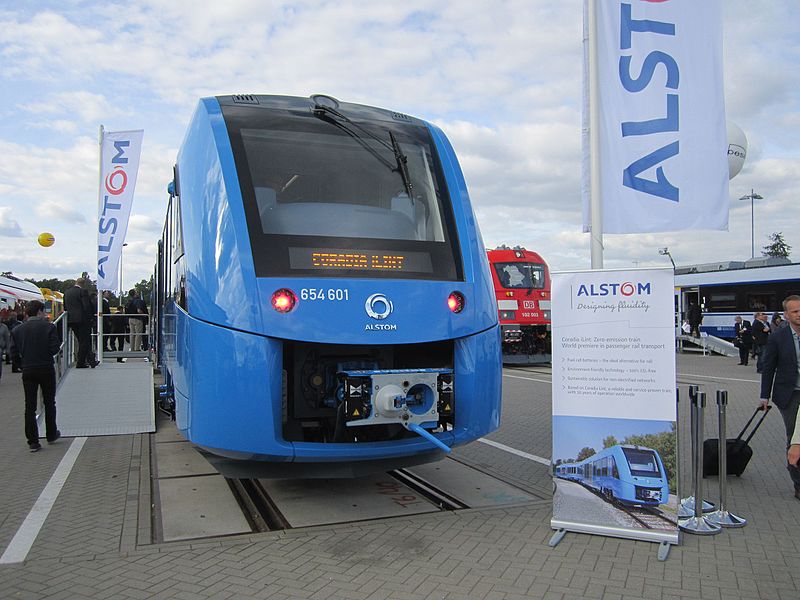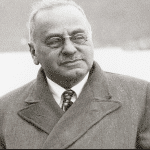Lets take a look at the Hydrogen fuel cell trains that may be taking over British railroads
Hydrogen fuel cell trains could keep running on British railroads as early as 2022, as plans to acquaint energy unit innovation with the system assembles pace.
French rail worldwide Alstom and UK moving stock working organization (ROSCO) Eversholt Rail Group have today uncovered the structure for another hydrogen power module train for the UK showcase. Given the attempted and-tried British Rail Class 321, the power device trains – nicknamed ‘Breeze’ – will convey zero-discharge hydrogen tech to parts of the UK that still keep running on diesel.
“Hydrogen train innovation is an energizing advancement which can change our railroad, making ventures cleaner and greener by cutting CO2 emanations much further. We are working within the industry to set up how hydrogen fuel cell trains can have a critical impact, later on, conveying better administrations on provincial and between urban courses,” said Andrew Jones MP, UK Rail Minister.
By changing over the numerous electrical units (EMUs) to what Alstom portrays as a hydrogen different unit (HMU), the Paris based firm will join the effectiveness and common sense of the current moving stock with the adaptability and natural advantages of hydrogen energy components.
The change work is relied upon to occur throughout the following three years at Alstom’s Widnes office, with the main trains anticipated to be running as early as 2022.

Introduction To Fuel Cells
With the rise towards the use of alternative fuels, the country is pushing this trend specifically towards hydrogen fuels which are needed in order for hydrogen fuel cells to run. So what is a hydrogen fuel cell?
A fuel cell is a so called electrochemical energy conversion device. It works by converting the elements hydrogen and oxygen, into water. This process in turn then produces what we know as electricity. The most familiar electrochemical device we know of and use widely is the battery, which stores all of its elements inside, before being converted into electricity. Depending on what type of battery you have, once it eventually “goes dead”, you would then either recharge it with a charger, or just simply dispose of it as it is no longer of use, as it has been depleted of ‘electricity’.
Fuel cells give out a constant flow of electricity as long as elements flow continuously into the cell. Hydrogen and oxygen are the elements most used in today’s fuel cells. Hydrogen fuel cells only emit water vapour, which is the greatest advantage to using it – no greenhouse gases here and what great way to save the environment!
There are many different types of hydrogen fuel cells, and there are other types of fuel cells that are in production. The main hydrogen fuel cell being produced is the Polymer Exchange Membrane Fuel Cell. (PEMFC). It gives off a high power density in relation to its low operating temperature (from 60 to a range of 80 degrees Celsius that is 140 to 176 degrees Fahrenheit). This is a great advantage meaning that the fuel does not take much time to warm up before it begins to generate electricity.
This will convey zero-emanation innovation to regions of the UK
The hydrogen fuel cell trains are allegedly founded on the British Rail Class 321 and will have the capacity to achieve rates of 87 mph. Besides, they will be almost quiet while voyaging and the main waste items will be water and steam, making the trains’ outflows free.
An armada of electric trains that were worked on in 1988 by British Rail will be the first to be changed over into hydrogen-controlled trains. Alstom will change over the numerous electrical units (EMUs) to hydrogen various units (HMUs), joining the flexibility and natural advantages of hydrogen power devices with the productivity and common sense of the current moving stock. The conventional British Rail Class 321 trains will change over from traditional diesel to hydrogen. Alstom guarantees that this plan is the main task that will permit hydrogen energy units to fit inside the standard UK stacking check.
“The railroads need to decarbonize, and the legislature has properly defined an objective to wipe out diesel moving stock by 2040.”
“Hydrogen fuel cell trains offer a perfect answer for courses which are probably not going to profit by a jolt, and our inventive building arrangement implies they would now be able to fit inside the UK stacking measure and can rapidly be good to go on Britain’s railroads.”
The structure changes over the trains’ electrical various units (EMUs) to hydrogen different units (HMUs). Hydrogen will be changed over into power, which will be utilized to run the engine.
As indicated by Alstom, this will join the effectiveness and common sense of the current moving stock with the flexibility and natural advantages of hydrogen energy components – from which the main discharge is perfect water.
Even though this will be the first to change over Britain’s trains to hydrogen control, Alstom’s plans are as of now being used in Germany. The Co radio lint hydrogen train was presented in September a year ago, working everyday traveller administrations. The organization likewise guarantees that the leader of France’s Occitanie locale has communicated enthusiasm for receiving the innovation.
“In Germany, Alstom’s hydrogen fuel cell trains are as of now transporting travellers in the solace and calm that is normal for these trains. The Breeze offers British rail clients the chance to partake in the joy that is an adventure on a hydrogen train.”
Just as the ecological advantages, the hydrogen-controlled trains will permit more space for travellers than the modern trains, and give a lot calmer ordeal than diesel-fuelled trains.
“Transport in the UK has advanced over hundreds of years from the world’s first steam train to the huge number of electric vehicles on our streets today because of our country of trendsetters,” said Claire Perry MP, UK Minister for Energy and Clean Growth.
“This new hydrogen-fuelled train, which will produce water, is additional evidence of the UK’s proceeded with imagination to change the manner in which we make a trip as we keep on moving to a greener, cleaner economy. The UK is on track with regards to growing a world-driving hydrogen economy, and through our advanced Industrial Strategy we are giving £23 million to control our aspiration to be the ‘go-to’ put for top-notch hydrogen transport.”
















